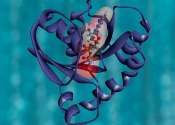Hepatitis drug increases antibiotic potency, limits antibiotic resistance
An FDA-approved drug for hepatitis C can increase bacterial sensitivity to antibiotics and reduce the likelihood of antibiotic resistance, according to a new study led by New York University researchers published in Cell ...









